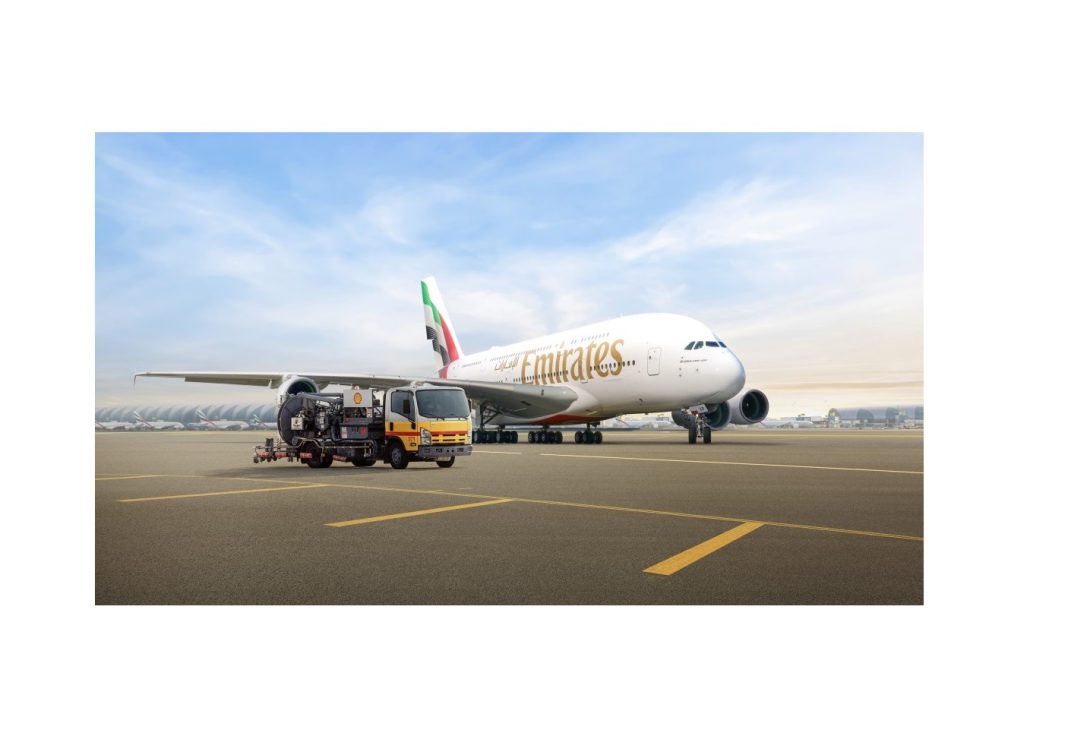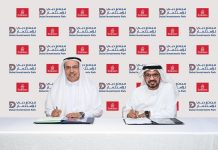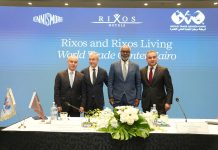Emirates has today announced an agreement with Shell Aviation for the supply of over 300,000 gallons of blended SAF for use at the airline’s international hub in Dubai (DXB). The first SAF delivery under the agreement is expected to commence before the end of the year, making it the first time that SAF is supplied through the DXB airport fuelling system.
The agreement is the latest step forward taken by Emirates as part of its environmental strategy that focuses on three areas: emissions reduction, responsible consumption, and the conservation of wildlife and habitats.
As part of the agreement, Emirates will track SAF delivery and its use data through Avelia, one of the world’s first blockchain powered SAF solutions. Avelia is powered by Shell Aviation and Accenture, with support from Energy Web together with American Express Global business travel. Through Avelia, Emirates will purchase the physical SAF and associated environmental attributes to help decarbonise its Scope 1 related emissions, while Scope 3 environmental attributes associated to the same physical SAF will be purchased by Shell Corporate Travel to help decarbonise its related business travel. By using Avelia, the agreement demonstrates how book and claim solutions can enable airlines and corporates to both share the environmental benefits of SAF.
Sir Tim Clark, President Emirates Airline said: “We are proud to work in partnership with Shell to make a SAF supply available for Emirates in Dubai for the first time, and to utilise the Avelia platform that provides business travellers the flexibility to align their sustainability targets and reduce their environmental footprint when travelling. We hope that this collaboration develops further to provide an ongoing future supply of SAF in our hub, as there are currently no production facilities for SAF in the UAE. Aviation plays a vital role in Dubai and the wider UAE economy, and we look forward to continue collaborating with like-minded organisations and government entities to look at viable solutions that introduce more SAF, a fuel that is currently extremely limited in supply, into the aviation fuel supply chain and support Emirates’ efforts to reduce emissions across our operations.”
Chu Yong-Yi, Vice President of Shell Corporate Travel said: “Emirates and Shell have a long-standing commercial relationship, and it is fantastic to build on this to now work together on decarbonisation. This agreement marks a step forward for the aviation industry in the UAE. Enabling SAF to be supplied at DXB for the first time is an important milestone, and a perfect example of how the different parts of the aviation value chain have a role to play in unlocking progress on SAF. We hope that this can act as a springboard for more action on SAF across the aviation industry in the UAE and region, delivering another step forward for our net zero emissions journey.”
As a safe and fully certified drop-in fuel compatible with existing aircraft fleet and airport infrastructure, SAF can be blended with conventional jet fuel at a ratio of up to 50%, creating an aviation fuel that is significantly lower in lifecycle carbon emissions. In its neat form, SAF can reduce lifecycle emissions by up to 80% compared to conventional jet fuel.1
Earlier this year, Emirates successfully completed the first 100% SAF-powered demonstration flight in the region. The airline’s first flight powered by SAF blended with jet fuel took place in 2017, operating from Chicago on a Boeing 777. The airline has also uplifted SAF for flights from Stockholm, and currently operates flights from Paris, Lyon and Oslo with blended SAF.
Emirates participates in a range of industry and UAE government working groups, along with ongoing stakeholder engagements to help scale the production and supply of SAF. Last year, together with the UAE GCAA, the airline contributed to the development of the UAE’s Power-to-Liquid (PtL) fuels roadmap, driven by the UAE Ministry of Energy and Infrastructure and the World Economic Forum, and has been an active participant in the UAE’s National Sustainable Aviation Fuel Roadmap launched in January 2023 by the Ministry of Energy and Infrastructure and GCAA.








